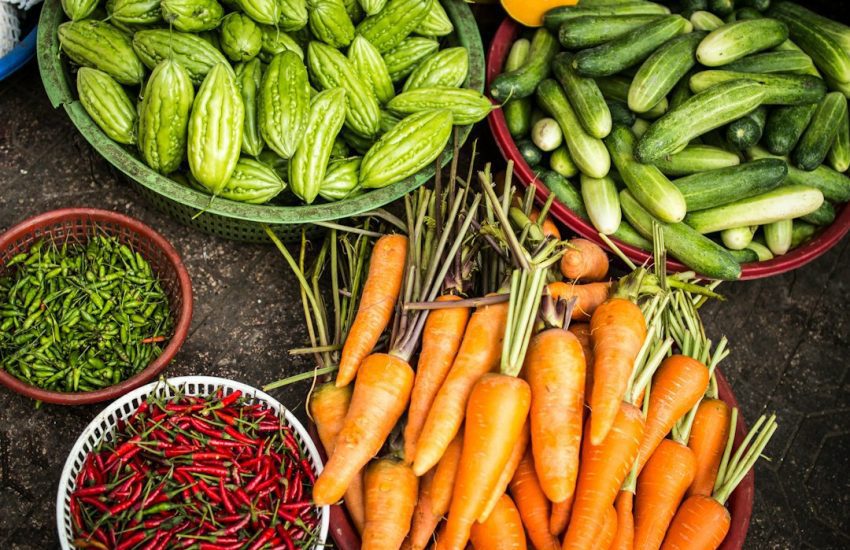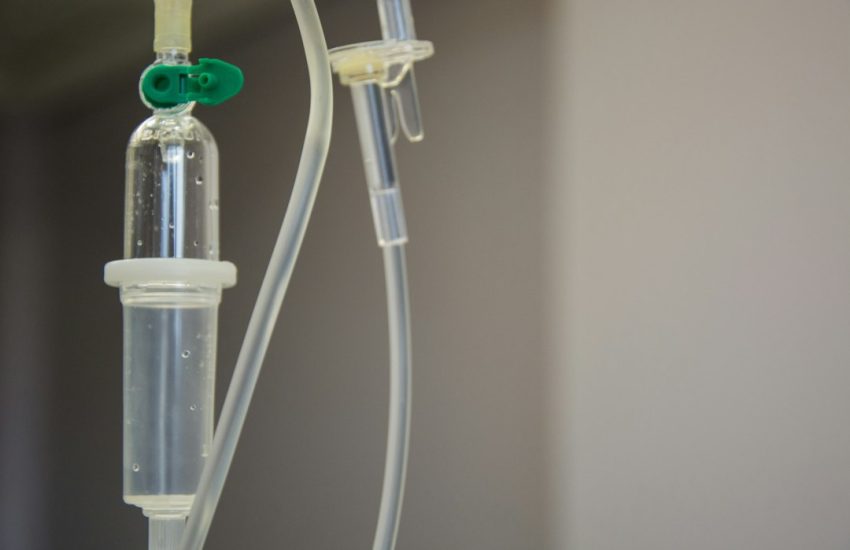Revitalize Your Digestive System: Top 5 Herbal Teas and Their Digestive Benefits
Contents
- 1 Introduction
- 2 Understanding the Importance of a Healthy Digestive System
- 3 How Herbal Teas Can Help Improve Digestion
- 4 Choosing the Right Herbal Tea for Your Digestive Needs
- 5 Ginger Tea: A Natural Remedy for Nausea and Indigestion
- 6 Peppermint Tea: Soothing and Calming for the Digestive Tract
- 7 Chamomile Tea: A Gentle and Relaxing Antispasmodic
- 8 Fennel Tea: A Natural Carminative for Bloating and Gas
- 9 Dandelion Tea: A Detoxifying and Liver-Supporting Herbal Infusion
- 10 Licorice Tea: A Sweet and Soothing Digestive Tonic
- 11 Incorporating Herbal Teas into Your Daily Digestive Health Routine
- 12 Conclusion
Introduction
Digestive health is a crucial aspect of overall well-being. When our digestive system is functioning properly, we are able to absorb nutrients from the food we eat and eliminate waste efficiently. However, poor digestion can lead to a range of health issues, including bloating, gas, indigestion, and even more serious conditions such as irritable bowel syndrome (IBS) or inflammatory bowel disease (IBD). One natural and effective way to support digestive health is by incorporating herbal teas into our daily routine. Herbal teas have been used for centuries to aid digestion and promote overall wellness.
Understanding the Importance of a Healthy Digestive System
The digestive system is responsible for breaking down the food we eat into smaller molecules that can be absorbed by the body. It consists of various organs, including the mouth, esophagus, stomach, small intestine, large intestine, liver, gallbladder, and pancreas. Each organ plays a specific role in the digestion process.
When our digestive system is not functioning properly, it can lead to a range of negative effects on our overall health. Poor digestion can result in nutrient deficiencies, as our body may not be able to absorb essential vitamins and minerals from the food we eat. It can also lead to discomfort and digestive issues such as bloating, gas, constipation, or diarrhea. In addition, research has shown that there is a strong connection between gut health and mental health, with poor digestion being linked to conditions such as anxiety and depression.
How Herbal Teas Can Help Improve Digestion
Herbal teas are made from various plants and herbs that have been used for centuries for their medicinal properties. When it comes to digestion, herbal teas can help in several ways. Firstly, many herbal teas have carminative properties, which means they help to relieve gas and bloating by promoting the expulsion of gas from the digestive system. Secondly, certain herbal teas have antispasmodic properties, which means they can help to relax the muscles of the digestive tract and alleviate cramping and spasms. Lastly, some herbal teas have anti-inflammatory properties, which can help to reduce inflammation in the digestive system and promote healing.
In addition to these specific properties, herbal teas are also hydrating and can help to promote regular bowel movements, which is essential for healthy digestion. They can also provide a soothing and calming effect on the digestive system, helping to reduce stress and promote relaxation.
Choosing the Right Herbal Tea for Your Digestive Needs
There are many different types of herbal teas available, each with its own unique benefits for digestion. Here are some of the most popular herbal teas and their specific benefits:
– Ginger Tea: Ginger tea is known for its ability to alleviate nausea and indigestion. It can help to soothe an upset stomach and promote healthy digestion.
– Peppermint Tea: Peppermint tea is a popular choice for digestive issues such as bloating, gas, and indigestion. It has a calming effect on the muscles of the digestive tract and can help to relieve spasms.
– Chamomile Tea: Chamomile tea is a gentle and relaxing antispasmodic that can help to soothe the digestive tract. It is often used to relieve symptoms of IBS or other digestive disorders.
– Fennel Tea: Fennel tea is a natural carminative that can help to alleviate bloating and gas. It can also help to relax the muscles of the digestive tract and promote healthy digestion.
– Dandelion Tea: Dandelion tea is a detoxifying herbal infusion that can help to support liver function. It can aid in digestion by promoting the production of bile, which is essential for breaking down fats.
– Licorice Tea: Licorice tea is a sweet and soothing digestive tonic that can help to relieve symptoms of indigestion and heartburn. It can also help to reduce inflammation in the digestive system.
When choosing an herbal tea for your specific digestive needs, it is important to consider the specific properties of each tea and how they align with your symptoms. It may be helpful to consult with a healthcare professional or herbalist to determine the best tea for your individual needs.
Ginger Tea: A Natural Remedy for Nausea and Indigestion
Ginger tea is one of the most well-known herbal teas for digestive health. It has been used for centuries in traditional medicine to alleviate nausea, indigestion, and other digestive issues. Ginger contains compounds called gingerols and shogaols, which have anti-inflammatory and antioxidant properties.
Ginger tea works by stimulating digestion and promoting the production of digestive enzymes. It can help to relieve symptoms of nausea by calming the stomach and reducing inflammation in the digestive system. Ginger tea is also known for its ability to alleviate indigestion, bloating, and gas. It can help to relax the muscles of the digestive tract and promote healthy digestion.
To make ginger tea, simply steep fresh ginger slices or grated ginger in hot water for about 10 minutes. You can also add a squeeze of lemon or a teaspoon of honey for added flavor. Drink ginger tea before or after meals to support digestion and alleviate symptoms of nausea or indigestion.
Peppermint Tea: Soothing and Calming for the Digestive Tract
Peppermint tea is another popular herbal tea for digestive health. It has a refreshing taste and a cooling effect on the body, making it a soothing choice for digestive issues such as bloating, gas, and indigestion.
Peppermint contains menthol, which has antispasmodic properties that can help to relax the muscles of the digestive tract. This can help to alleviate cramping and spasms and promote healthy digestion. Peppermint tea can also help to relieve symptoms of irritable bowel syndrome (IBS), a common digestive disorder characterized by abdominal pain, bloating, and changes in bowel habits.
To make peppermint tea, steep fresh or dried peppermint leaves in hot water for about 5 minutes. You can also add a teaspoon of honey or a squeeze of lemon for added flavor. Drink peppermint tea after meals or whenever you experience digestive discomfort.
Chamomile Tea: A Gentle and Relaxing Antispasmodic
Chamomile tea is well-known for its calming and soothing properties. It has been used for centuries to promote relaxation and relieve stress. In addition to its calming effects, chamomile tea can also be beneficial for digestion.
Chamomile contains compounds called flavonoids, which have anti-inflammatory and antispasmodic properties. These properties can help to relax the muscles of the digestive tract and alleviate cramping and spasms. Chamomile tea is often used to relieve symptoms of irritable bowel syndrome (IBS) or other digestive disorders.
To make chamomile tea, steep dried chamomile flowers in hot water for about 5 minutes. You can also add a teaspoon of honey or a squeeze of lemon for added flavor. Drink chamomile tea before bed or whenever you need a calming and soothing effect on your digestive system.
Fennel Tea: A Natural Carminative for Bloating and Gas
Fennel tea is a popular choice for digestive issues such as bloating and gas. It has been used for centuries in traditional medicine to promote healthy digestion and alleviate symptoms of indigestion.
Fennel contains compounds called anethole, which have carminative properties. Carminatives are substances that help to relieve gas and bloating by promoting the expulsion of gas from the digestive system. Fennel tea can also help to relax the muscles of the digestive tract and promote healthy digestion.
To make fennel tea, steep crushed fennel seeds in hot water for about 10 minutes. You can also add a teaspoon of honey or a squeeze of lemon for added flavor. Drink fennel tea after meals or whenever you experience bloating or gas.
Dandelion Tea: A Detoxifying and Liver-Supporting Herbal Infusion
Dandelion tea is a detoxifying herbal infusion that can help to support liver function and promote healthy digestion. Dandelion has been used for centuries in traditional medicine to cleanse the liver and promote detoxification.
Dandelion contains compounds called taraxacin and inulin, which have diuretic and liver-supporting properties. These properties can help to promote the production of bile, which is essential for breaking down fats and promoting healthy digestion. Dandelion tea can also help to reduce inflammation in the digestive system and alleviate symptoms of indigestion.
To make dandelion tea, steep dried dandelion leaves or roots in hot water for about 10 minutes. You can also add a teaspoon of honey or a squeeze of lemon for added flavor. Drink dandelion tea regularly to support liver function and promote healthy digestion.
Licorice Tea: A Sweet and Soothing Digestive Tonic
Licorice tea is a sweet and soothing herbal tonic that can help to relieve symptoms of indigestion and heartburn. Licorice has been used for centuries in traditional medicine to promote healthy digestion and soothe the digestive tract.
Licorice contains compounds called glycyrrhizin and flavonoids, which have anti-inflammatory and soothing properties. These properties can help to reduce inflammation in the digestive system and alleviate symptoms of indigestion or heartburn. Licorice tea can also help to promote the production of mucus in the digestive tract, which can help to protect the lining of the stomach and prevent damage from stomach acid.
To make licorice tea, steep dried licorice root in hot water for about 5 minutes. You can also add a teaspoon of honey or a squeeze of lemon for added flavor. Drink licorice tea after meals or whenever you experience symptoms of indigestion or heartburn.
Incorporating Herbal Teas into Your Daily Digestive Health Routine
Incorporating herbal teas into your daily routine can be a simple and effective way to support digestive health. Here are some tips for incorporating herbal teas into your daily routine:
1. Start your day with a cup of herbal tea: Choose an herbal tea that aligns with your specific digestive needs and enjoy a cup in the morning to kickstart your digestion.
2. Drink herbal tea after meals: Enjoy a cup of herbal tea after meals to promote healthy digestion and alleviate symptoms of bloating or indigestion.
3. Replace sugary drinks with herbal tea: Instead of reaching for sugary sodas or juices, opt for herbal tea as a healthier alternative. Herbal teas are hydrating and can provide additional benefits for digestion.
4. Experiment with different herbal teas: Try different types of herbal teas to find the ones that work best for you. Each person’s digestive system is unique, so it may take some trial and error to find the right herbal teas for your specific needs.
5. Be consistent: Consistency is key when it comes to using herbal teas for digestive health. Drink herbal tea regularly to experience the full benefits and support long-term digestive wellness.
Conclusion
In conclusion, herbal teas can be a valuable addition to your daily routine for improved digestion and overall well-being. They offer a natural and effective way to support digestive health, alleviate symptoms of bloating, gas, indigestion, and promote healthy digestion. Whether you choose ginger tea for nausea and indigestion, peppermint tea for soothing the digestive tract, chamomile tea for relaxation and antispasmodic effects, fennel tea for bloating and gas, dandelion tea for detoxification and liver support, or licorice tea for a sweet and soothing digestive tonic, incorporating herbal teas into your daily routine can have a positive impact on your digestive health. So why not give it a try and experience the benefits of herbal teas for yourself?



